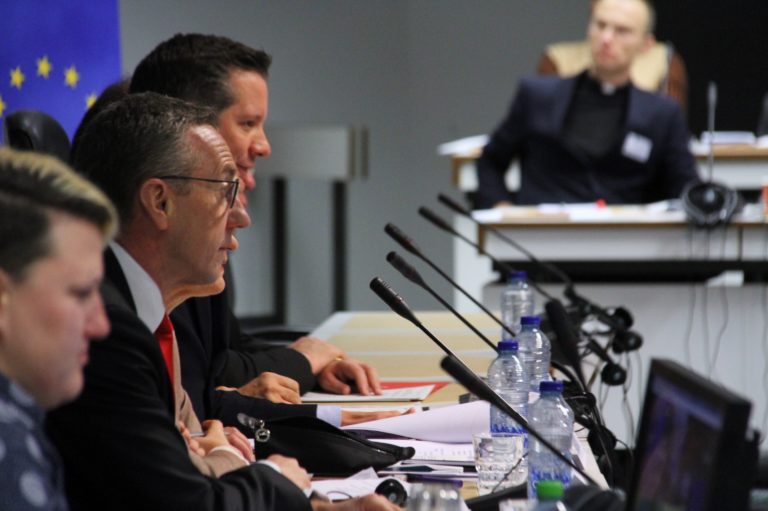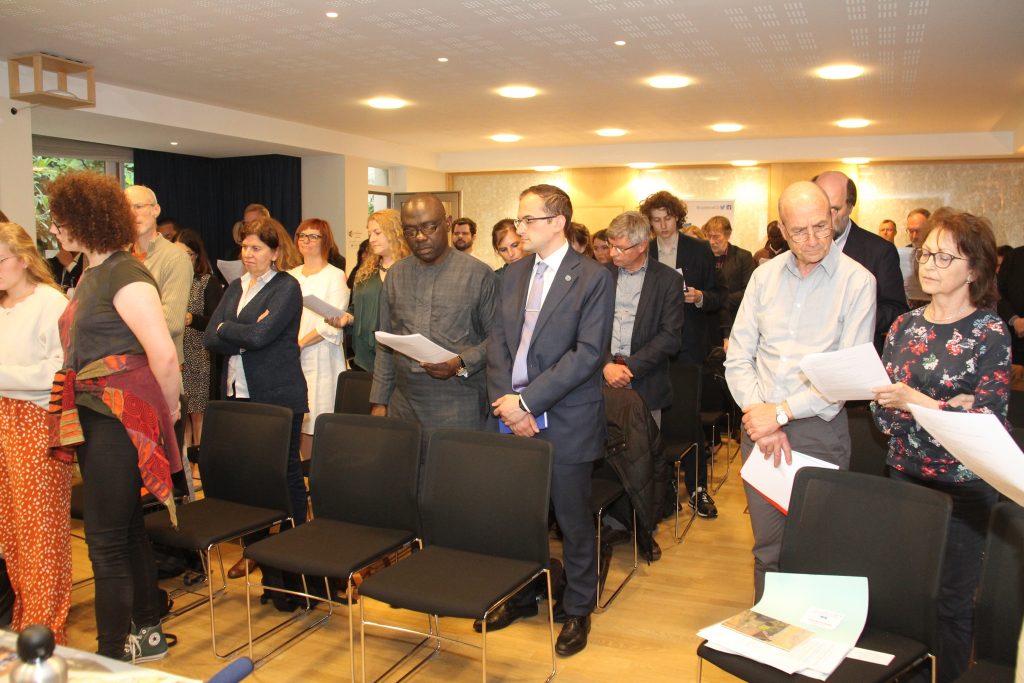
On Wednesday, June 12th, participants from all over Europe gathered in Brussels to share insights and initiatives regarding the protection of our common home in the face of the current climate crisis. The ideas shared were the cornerstone of the Second European Laudato Si’ Reflection Day, hosted by the Commission of the Bishops’ Conferences of the European Union. Laudato Si’, published in 2015, spurred global interest by providing a dire diagnostic of the current situation of the world, attributed to the rise of a throwaway culture and to the dominant technocratic paradigm. It also introduced the concept of “integral ecology”, which refers to an approach to climate change which includes personal spirituality to global governance.
During the Day of Reflection, a wide array of speakers from all over Europe presented initiatives in areas ranging from economics to family and carried out by a broad range of actors including bishops’ conferences and universities. Among the speakers was Stefania Proietti, the Mayor of Assisi, who described how the city has taken on the mission to become a replicable model that can lead the ecological conversion by example. The birthplace of Saint Francis has heeded his advice and, after all these years, knuckled down to the task. Using the see-judge-act triad, Assisi has introduced multiple measures that aim to ensure sustainable development and to protect the territory and the environment, particularly in the areas of waste management and of curtailing CO2 emissions, which the city aims to reduce by 40% by the year 2030. They also aim to have the city plastic free by the feast of St Francis this year.

Mr. Said El Khadroui, from the European Policy Strategy Center, discussed Kate Raworth’s Doughnut of Social and Planetary Boundaries Model (see image below), according to which there is a thin margin that allows each individual human being to have access to all of life’s essentials while still allowing humankind to collectively remain at a sustainable level of natural resource consumption.

Mgr. Jean-Claude Hollerich SJ, President of COMECE and Archbishop of Luxembourg, stressed the need for an ecological conversion, in both material and spiritual terms, for the continuation of intergenerational justice and solidarity; as well as the importance of always maintaining human dignity at the centre of the agenda, especially regarding the poor and the excluded. It remains to be seen how much Laudato Si’ will impact the policies and decisions adopted by the EU in the coming years, but its contents have already shown their power to engender collaboration by inspiring readers to host events such as the Second European Laudato Si’ Reflection Day, in which attendees may discern together the actions they should take to protect the world.
The event was organised by the Commission of the Bishops’ Conferences of the EU (COMECE), the Council of Bishops’ Conferences in Europe (CCEE), the network of Justice and Peace Europe, CIDSE, the Global Catholic Climate Movement (GCCM), the Jesuit European Social Centre (JESC).
Blanca Marabini
JESC Summer Intern 2019

